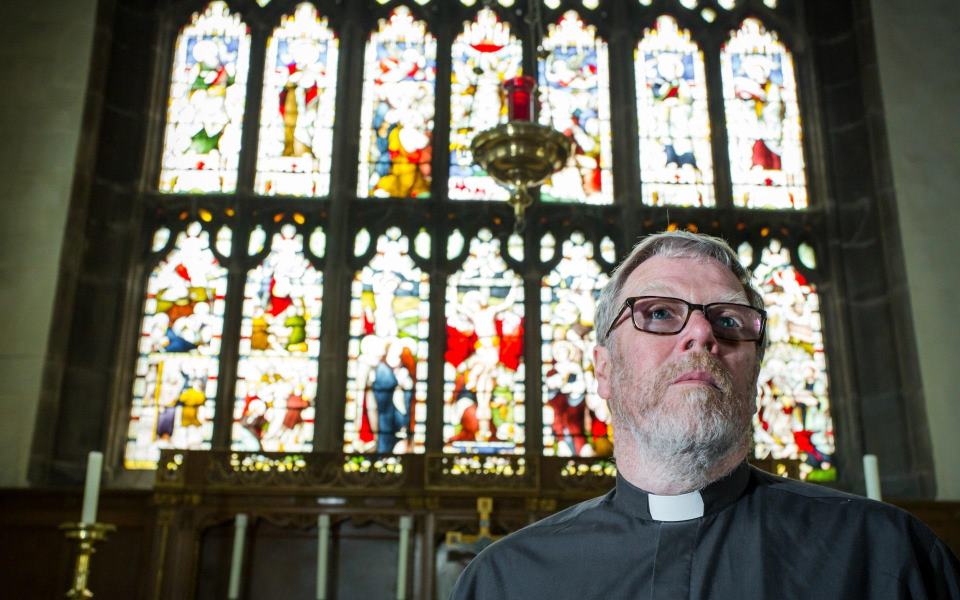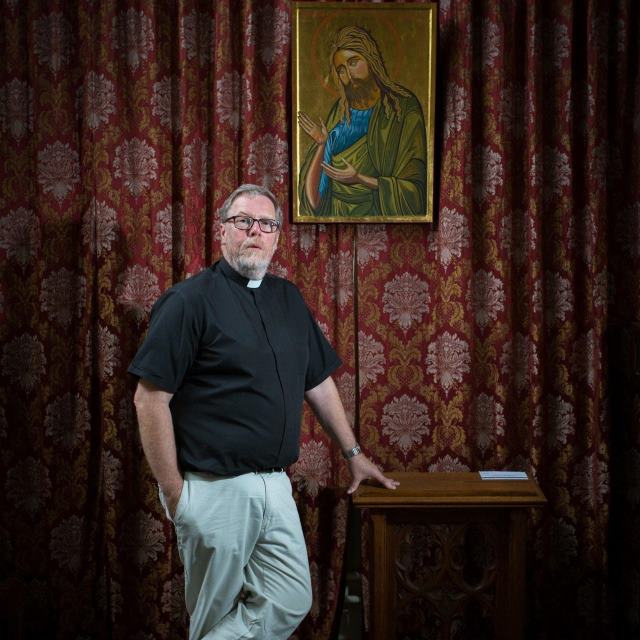Four Church of England priests have been murdered since 1997 and a previous survey that looked at violence against clergy, published by Royal Holloway in 2000, found that 12 per cent of clergy had been assaulted in the previous two years.
|
Rise of secularisation fuelling violence and verbal abuse against Christian clergy
By Abigail Frymann Rouch And Olivia Rudgard
Growing secularisation is leading to an increase in violence and verbal abuse against Christian clergy, experts fear. Priests told of experiences including discovering a witchcraft symbol sprayed on a church door and being followed home as academics launched a mass survey of priests to find out the scale of the problem. There are also concerns that sex abuse scandals and a growing number of female clergy is contributing to a growth in threats and violence against priests. Academics at Royal Holloway, University of London, are to survey around 7,000 Church of England clergy using £5,000 in funding from the Ministry of Housing, Communities and Local Government. The survey, which is to be circulated online this month, will ask clergy whether they have experienced verbal abuse, threats or physical violence in the last two years, and how often church property is damaged. Respondents will also be asked whether they have received abuse online and whether more violence is carried out against clergy now that almost a third of them are women. Professor Jonathan Gabe at Royal Holloway’s School of Law said the survey was concerned about “the declining status of clergy” as well as “increasing secularisation, and whether that is impacting on the respect that clergy now receive”. He said there was a “possibility” that the influence of sex abuse scandals and cover-ups had affected the way clergy felt about the church. Nick Tolson, director of National ChurchWatch, which is also involved in the survey and which records hate crime incidents against churches and clergy, said it also asked clergy whether factors were involved such as drug abuse, mental illness or “anti-Christian sentiments”. Revd David MacGeogh, the vicar of Glastonbury, told The Sunday Telegraph that he receives verbal abuse on a monthly basis. Five years ago he found a witchcraft symbol sprayed onto the church’s medieval door and he recounted how, during one service he had to lock himself in an upper room and dialled 999 after a man claiming to be Jesus chased him round the church. “People come in before and during the service and rant and rave, saying we are the works of Satan,” Revd MacGeogh said, adding that there was “no support system” for clergy in his position. The Ven Anne Gell, Archdeacon of Wells, in the vicar’s diocese, said “Over the past 10-15 years the Diocese has invested time and resources to help ensure our clergy are less vulnerable and isolated. The aim is to have help and support on hand whenever our clergy should need it.” Revd Dr Anne Morris, vicar of Knuzden in the diocese of Blackburn, said a male parishioner, who was later jailed for assault following an unrelated incident, followed her for a week and tried to enter the vicarage without permission. “I was in by myself and I was absolutely terrified,” she said. Her family has also been burgled several times and her diocese has provided a camera over the vicarage front door and extra fencing around the exterior of the building. A Church of England spokesman said: “We take the welfare and safety of our clergy very seriously indeed. “Verbal abuse, threats or assaults are completely unacceptable and we would urge clergy subjected to these kinds of incidents to report this to the police and their diocese.”
|
.
Any original material on these pages is copyright © BishopAccountability.org 2004. Reproduce freely with attribution.

